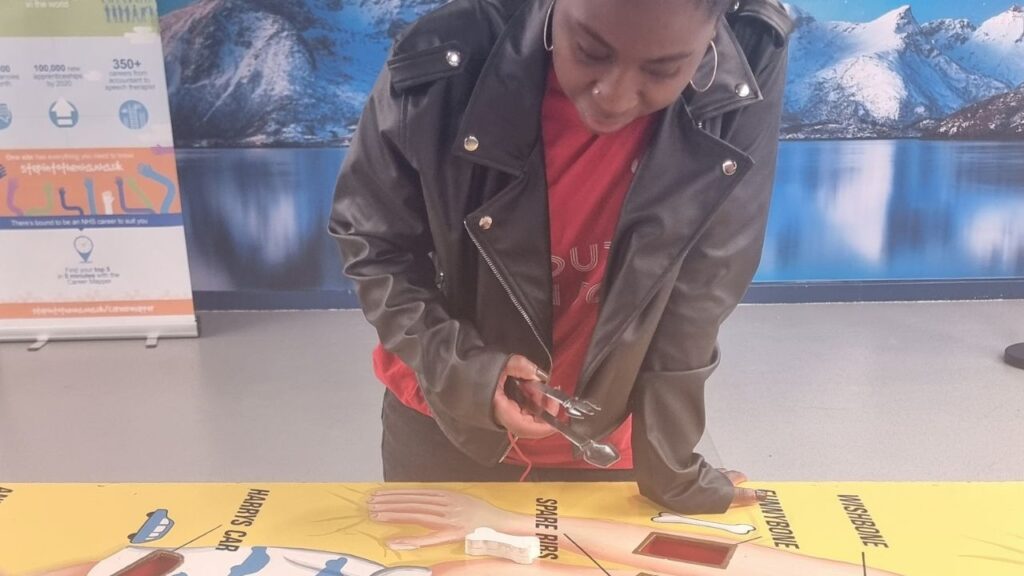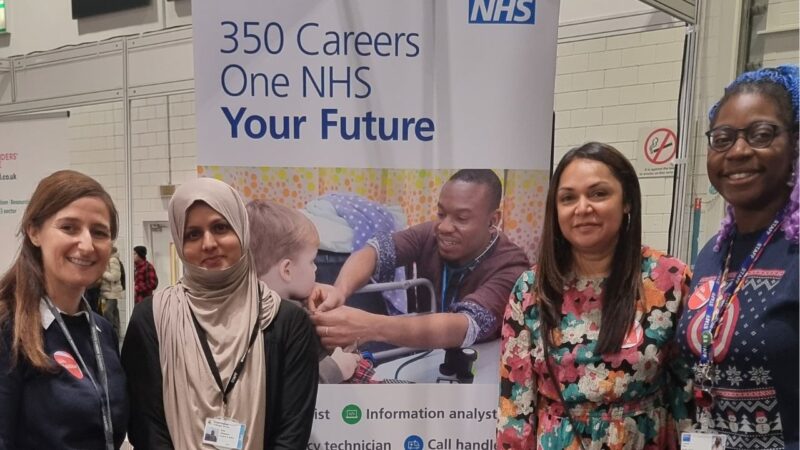With rising demand for workers in health and care, getting enough people to think of the NHS and care sector when career planning is a challenge, but a bold workforce strategy aims to change that.
It includes schemes that talk to young people in new and different ways, while encouraging older workers to think about health and care as well. It is also about ensuring that local hospitals and other health and care organisations – the anchor institutions with a huge stake in communities – are truly representative of the people they serve.
Times are changing – we have to be out there in our diverse communities talking to local people
Lorissa Page leads the workforce transformation project. She said: “Times are changing – we have to be out there in our diverse communities talking to local people about why the NHS and care sector is a great place to work. Expecting people to know about all the different opportunities we have to offer – and come to us – just isn’t working for them or for us.”

“Now we’re working with targeted, under-represented groups – disabled people, ethnic minority people, young people, care leavers, lone parents and the older people, who not only want to work, but need to work. It’s all about breaking down barriers and developing new ways that better attract and engage people.”
If you want to train in hospitality and catering, think of the NHS, if you want to work as an electrician, think about the NHS … there are lots of choices.
The project seeks to demonstrate that, with more than 350 careers to choose from, working in the NHS isn’t just about being a doctor or nurse. “We want people to know about all the different opportunities,” says Wendy Majewska from the workforce transformation team. “So, if you want to train in hospitality and catering, think of the NHS, if you want to work as an electrician, think about the NHS, if you want to work in IT … there are lots of choices.”
What’s happening?
Getting into schools and colleges
Ask the next generation of employees where they see themselves headed, and a job in the NHS or care sector might not be top of the list. According to Anisha Patel, from the workforce transformation team: “There are so many choices for young people – so, we’re trying to make ourselves marketable and accessible – encouraging them not to dismiss us.”
Talking to young people as they start to think about their careers is essential, so the team is spending more time in schools and colleges, including a recent week at South Thames College. Says Anisha: “We were invited into classes, working with more than 100 students. We didn’t just look at health and social care courses but also business, digital, finance, communications – we even had an art therapist talk to the art students.”
Rachael Armah works with secondary schools and supports engagement at borough level. “We have designed a ‘jobs that care’ board game that helps people understand the variety of exciting roles available to them in health and care. We organised for frontline staff to come and share their stories. The students loved hearing about their experiences.”
Evaluation showed that after engagement with students, over 80% said they would consider health and care careers in future.

Making the NHS a more inclusive employer
One aim is to simplify and speed up the process of recruiting people into the NHS. This includes reviewing the way people apply for jobs and thinking about how job descriptions are written – so people can easily match their skills and experience to needs and roles in the NHS.
A range of projects are taking place to address this. “We do a regular slot with Department for Work and Pension offices where we drop in and do sessions with unemployed people over 50,” says Anisha.
The I-CAN project, funded by NHS South West London’s Investment Fund, will support young people leaving care to become apprentice nursing associates in collaboration with the University of Roehampton.
And a series of employment events with GP practices and the voluntary sector has seen more than 1,000 people exploring NHS and care sector careers they never thought were for them, with some already securing permanent roles.
A new approach to work experience
Finding the right work experience or volunteering opportunity is vital at any age – for enhancing future job applications and making the right career choices.
“Our team is working on expanding the number or work experience placements in the NHS in south west London,” Lorissa explains. “We’ve come up with an approach where people work on projects that give them skills they can put on their CV and do something that makes a difference.”
An example is a project that brought together Croydon University Hospital with a local job centre. It offered four-week placements to people aged 19+ and was about setting up, advertising and running a careers fair. Those involved received support and coaching to develop the event, which gave them experience of project management, communications, administration and stakeholder engagement.
Find out more
Find out about different careers in health and care, apply for vacancies or find out about other jobs, apprenticeships and learning opportunities in South West London on our careers pages.
